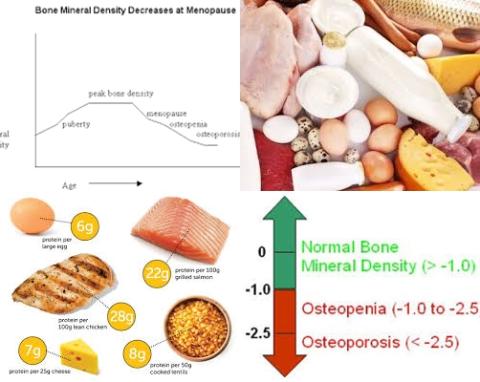
Objectives:
Does higher protein intake increase bone mineral density?
Study design:
This review article included 6 RCTs and 20 prospective cohort studies.
There were no adverse effects of higher protein intakes.
Studies were heterogeneous and confounding could not be excluded.
Results and conclusions:
The investigators found moderate evidence suggested that higher protein intake may have a protective effect on lumbar spine bone mineral density compared with lower protein intake [net percentage change = 0.52%, 95% CI = 0.06%-0.97%, I2 = 0%, n = 5] but had no effect on total hip, femoral neck, or total body bone mineral density or bone biomarkers.
The investigators concluded that higher protein intake may have a protective effect on lumbar spine bone mineral density. May have because studies were heterogeneous and confounding could not be excluded. Therefore, high-quality, long-term studies are needed to clarify dietary protein's role in bone health.
Original title:
Dietary protein and bone health: a systematic review and meta-analysis from the National Osteoporosis Foundation by Shams-White MM, Chung M, […], Weaver CM.
Link:
https://www.ncbi.nlm.nih.gov/pubmed/28404575
Additional information of El Mondo:
Find more information/studies on protein and elderly right here.
A higher protein diet is a diet with 20-35 En% protein. The easiest way to meet a diet with 20-35 En% protein is to choose food items/meals with also 20-35 En% protein. Check here which products contain 20-35 En% protein.